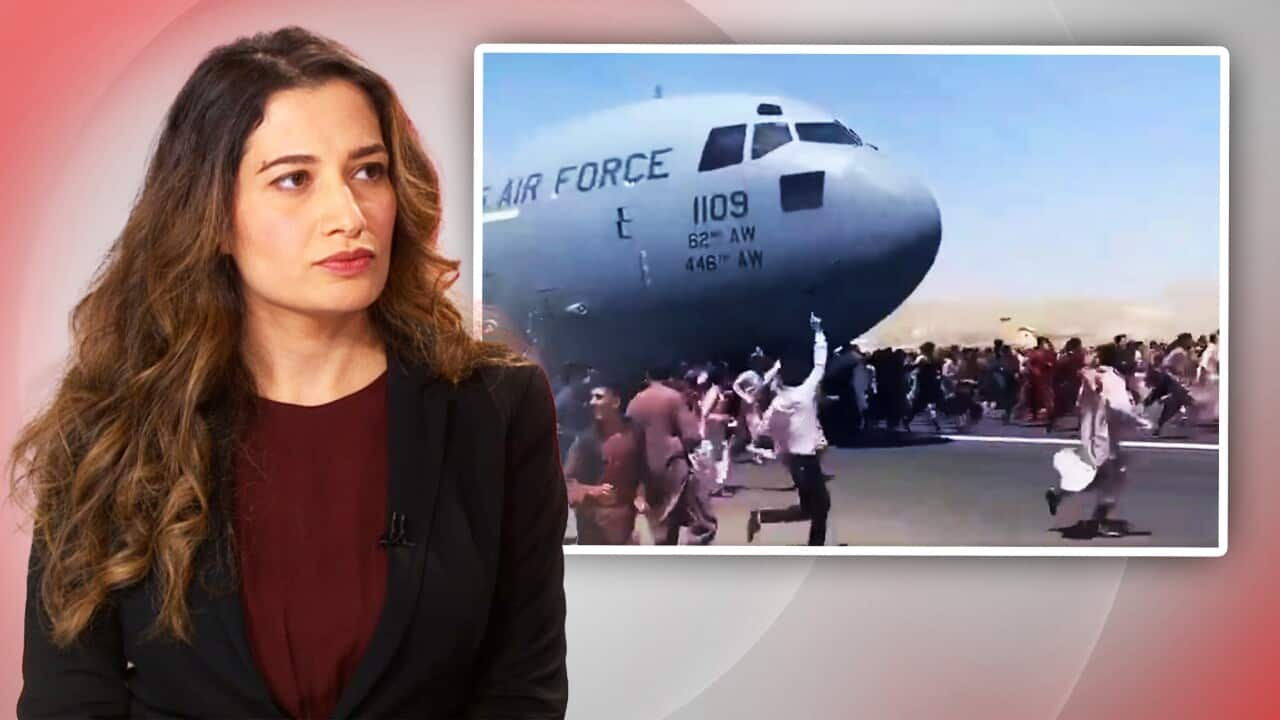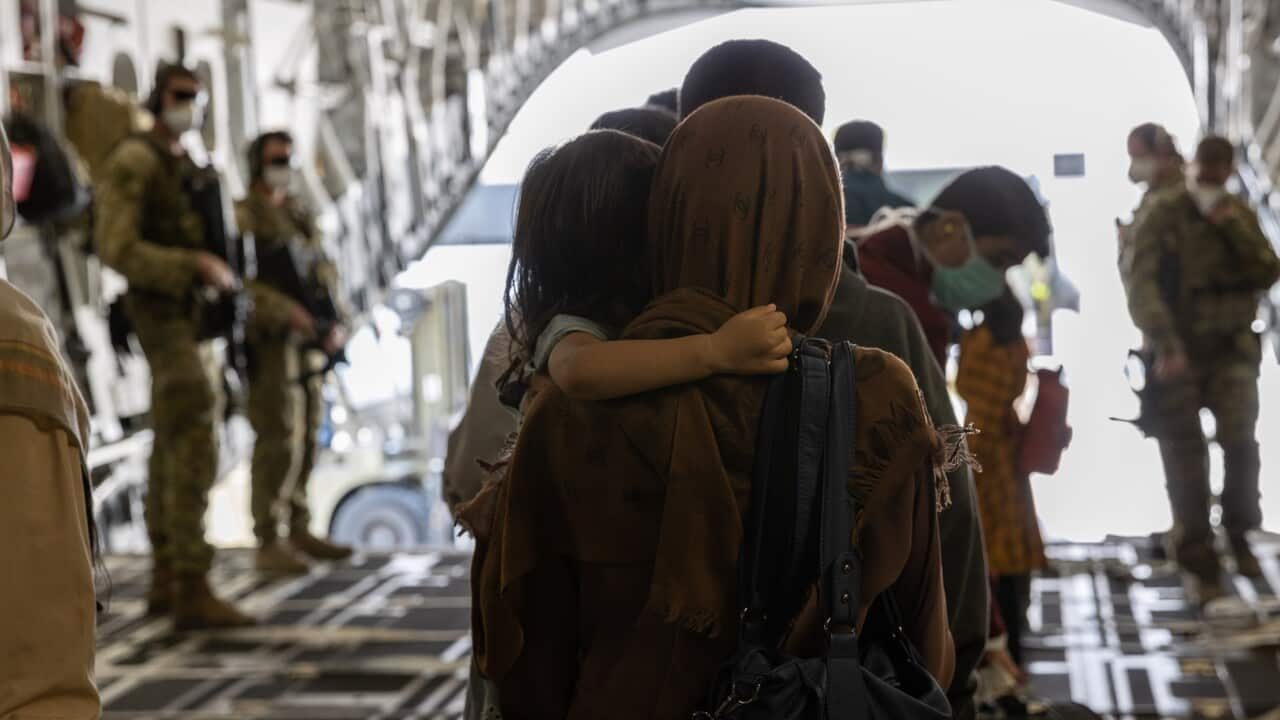Action for Afghanistan, a group comprised of leading Afghan-Australian activists, has renewed its calls for the federal government to do more to help Afghans fleeing the Taliban.
It comes a year after Afghanistan fell to the fundamentalist group, which prompted a wave of migration out of the country.
“Australia has a moral obligation to provide at least 20,000 emergency humanitarian visa places immediately,” the group said in a statement.
“The government must also ensure permanent protection to refugees already in Australia on uncertain temporary visas, and provide resettlement opportunities to refugees in Indonesia as well as remove all delays and restrictions on family reunification pathways.”
After the fall of Kabul on 15 August 2021, the previous Coalition government announced 3,000 humanitarian places for Afghan nationals within the existing humanitarian program.
In January, then Immigration Minister Alex Hawke announced that Australia would increase the number of humanitarian places for Afghan nationals to 10,000.
Advocacy groups at the time labelled the announcement "misleading", highlighting that it was a commitment within existing quotas and not additional places.
Then in the May budget, - over the next four years - which was outside of the existing cap for humanitarian visas, increasing the total number of humanitarian visas for this group to 26,500.
Despite this increase, Action for Afghanistan says both the current and former governments have done "very little" when it comes to processing the scores of visa applications submitted by Afghans.
Latest government data shows that as of 5 August, 47,912 applications - comprising an estimated 211,122 applicants - had been lodged since the Taliban's ascension to power.
The government has granted around 6,000 humanitarian visas to people from Afghanistan since August 15, 2021, with more than half of the applicants still waiting for their applications to be registered and acknowledged.
“It’s heartbreaking to think that after 12 long painful months and a change of government, we are still calling for concrete action for Afghanistan,” said Shabnam Safa, chair of the National Refugee-led Advisory and Advocacy Group and member of the Action for Afghanistan group.
“Despite the various promises and commitments, we’ve only seen 6,000 visas granted to people from Afghanistan in the last year," Mr Safa said.
“This has been an excruciatingly slow response from the Australian government, both the former and new. This crisis is only getting worse, we cannot waste more time and must act with urgency.”

Candlelight vigils were held across Australia on Monday night to mark Afghanistan’s fall to the Taliban. Credit: SBS Dari
“People are languishing, awaiting their applications to be processed and in the case of my extended family member who was abducted last year by suspected Taliban militia groups, we recently received news confirming our worst fears, that his body had been found,” she said.
The grave risk posed to the rest of the family is life-threatening
Temporary Protection Visas
Amnesty International Australia’s Refugee Rights Campaigner and Action for Afghanistan member Zaki Haidari says he watched in disbelief as the “dark and challenging day” of Kabul’s fall to the Taliban unfolded.
“It beggared belief that an Afghanistan that was built in the past 20 years had fallen apart in a few hours," he said.
It was like an unbelievable nightmare for all and for me as well.
Born in Afghanistan and a member of the Hazara ethnic group, he was forced to flee aged 17 and was smuggled to Australia by boat.

Around 5,000 refugees from Afghanistan are currently on temporary protection visas. Credit: Supplied/Zaki Haidari
For the past 10 years, the visa has restricted every aspect of his and thousands of other refugees like him, he says.
The but is yet to confirm a timeframe.
Mr Haidari said Labor’s promise gave fresh hope to around 5,000 Afghan refugees on temporary protection visas but “that hope is fading” due to the timeframe uncertainty.
He believes the government should end the "continuous uncertainty" they face and commit to a timeframe.
“We no longer have a home called Afghanistan to go to."
Government committed to supporting the Afghan community
A Department of Home Affairs spokesperson reiterated the government's support for "...the Afghan community at this distressing time."
"A program of 13,750 places in the 2022–23 Humanitarian Program will ensure we can provide permanent resettlement to those most in need, and provide appropriate support for the travel and resettlement of refugees and others requiring Australia’s protection," the spokesperson said.
They said a further 10,000 places for Afghan nationals had been allocated within the Program to be delivered between 2021-22 and 2024-25.
"Further, an additional 16,500 places for Afghan nationals will be delivered over the next four years in addition to annual Humanitarian Program intake (4,125 per year)," the spokesperson said.
"This brings the total number of places available to Afghan nationals to 31,500 over the next four program years, which comprises 26,500 places under the Humanitarian Program and 5,000 under the Family stream of the Migration Program."
They said as at 5 August 2022, since 17 August 2021, more than 47,900 humanitarian visa applications had been lodged in Australia by or on behalf of Afghan nationals and remained undecided, comprising of more than 211,100 applicants.
"More than 5,500 Afghan nationals have arrived in Australia on temporary humanitarian visas, issued to facilitate their urgent travel following the Taliban’s rise to power in August 2021," the spokesperson said.
The Australian Government urges all people remaining in Afghanistan to prioritise their safety. People remaining in Afghanistan must carefully consider the risks should they attempt to leave by any route.
"The Department is working to ensure that visa options continue to be available to Afghan nationals, both within Afghanistan and those who have been displaced from their home country. All visa applications will be processed in accordance with Government announcements and within program priorities, and assessed on an individual basis."
The Australian Government aspired to progressively increase Australia’s humanitarian intake and would review and consult with the community on future Humanitarian Program numbers and settings, the spokesperson said.



